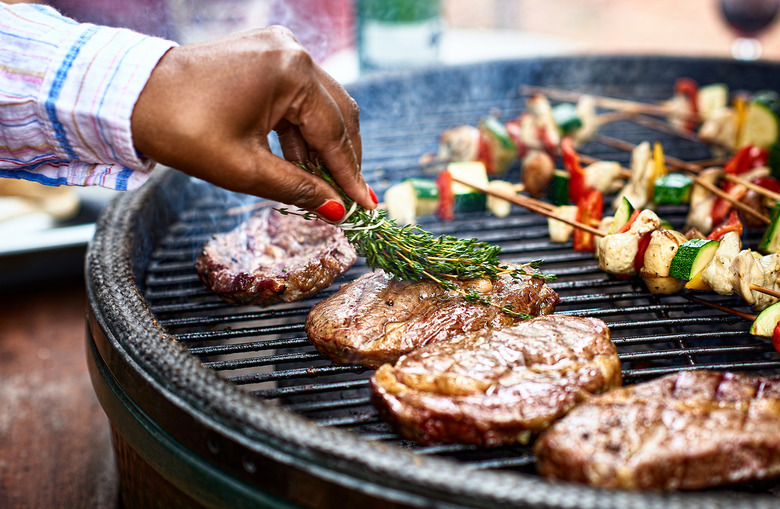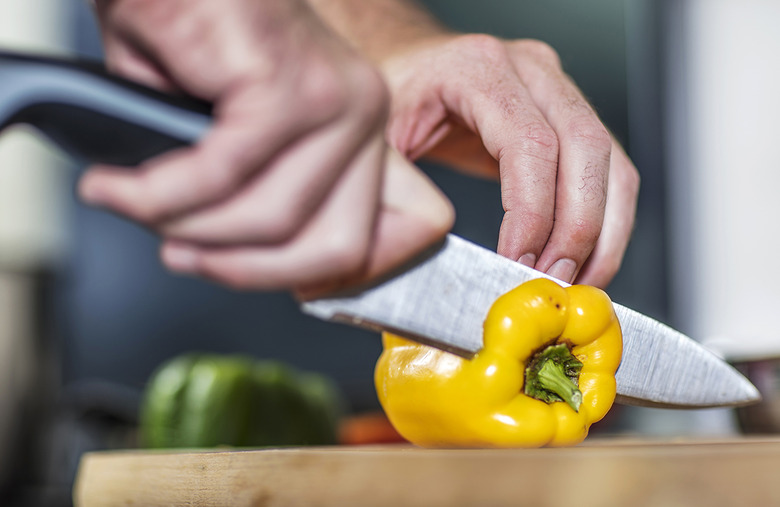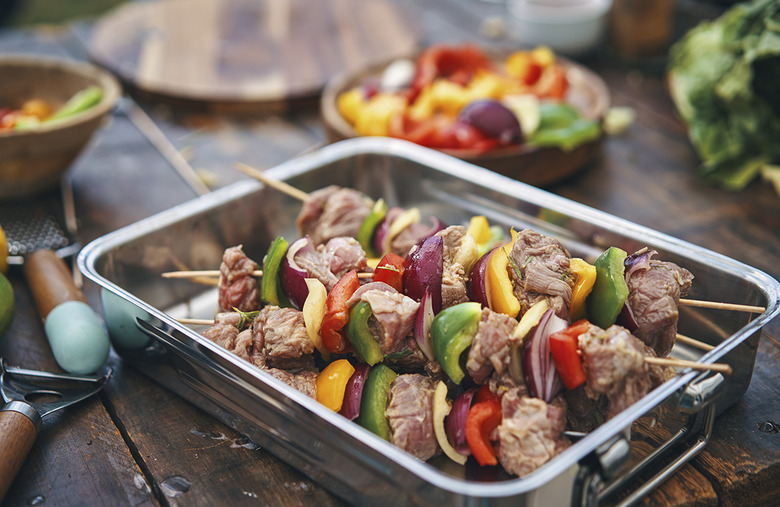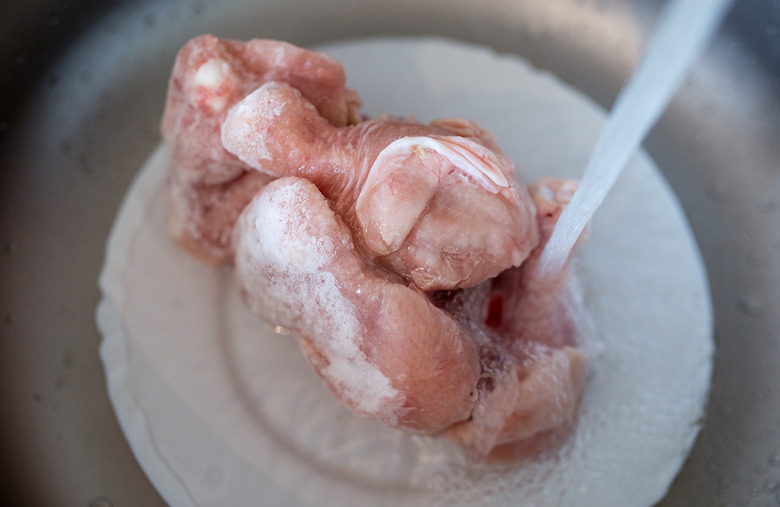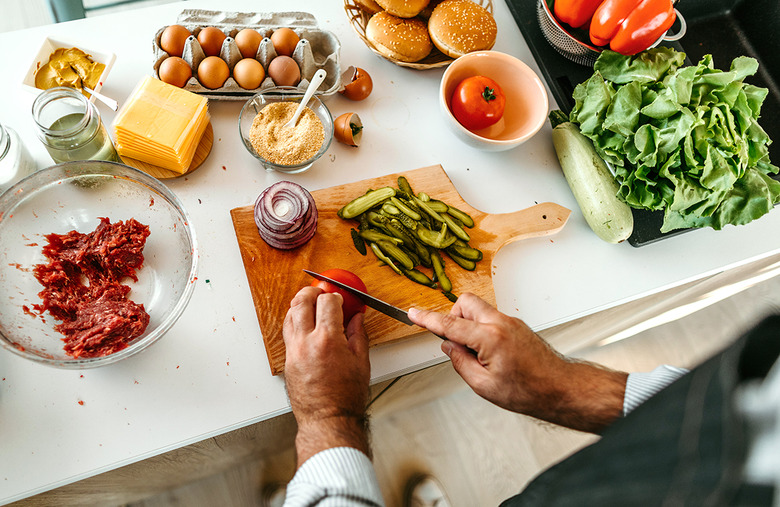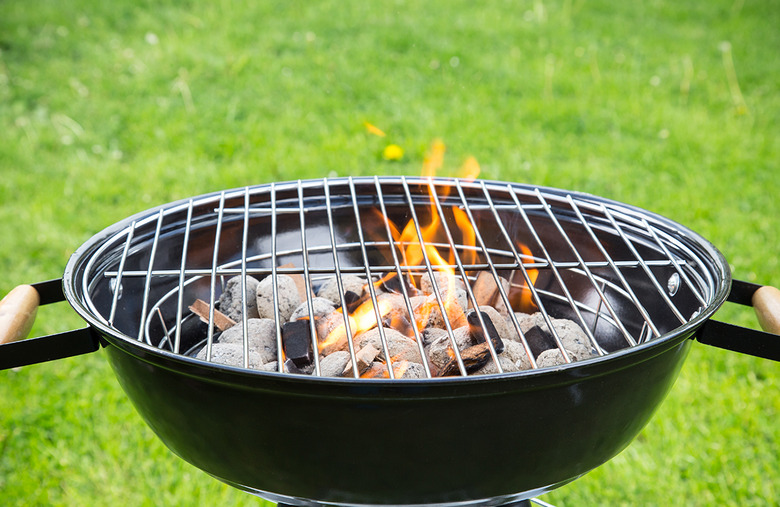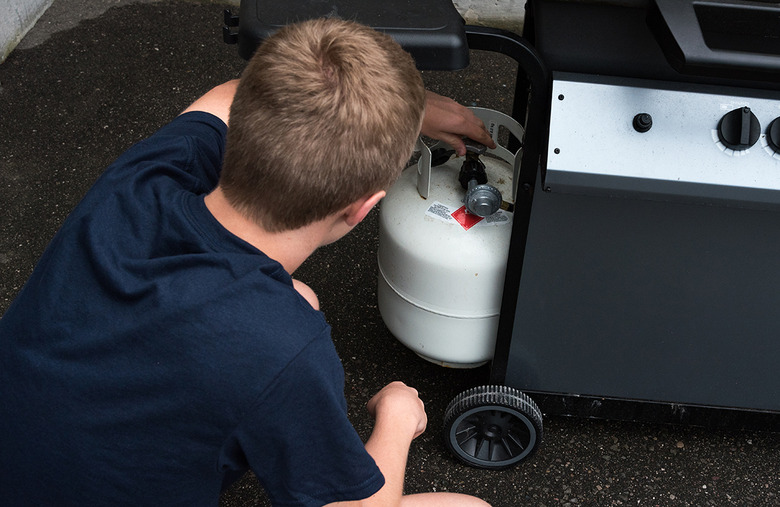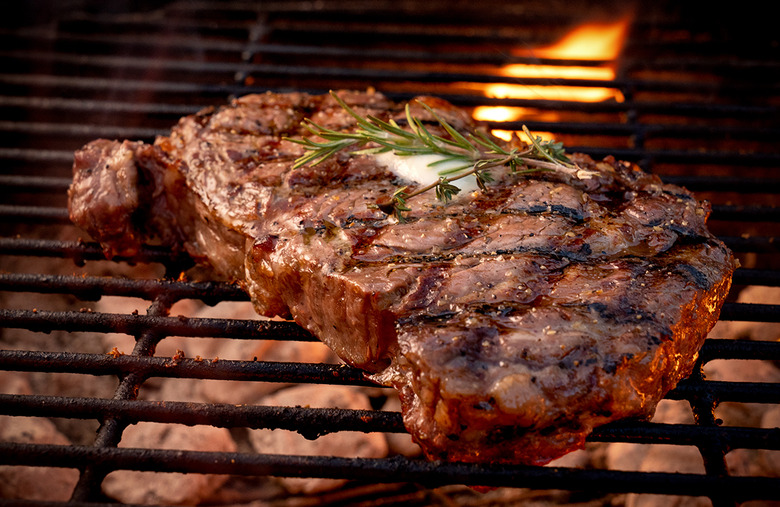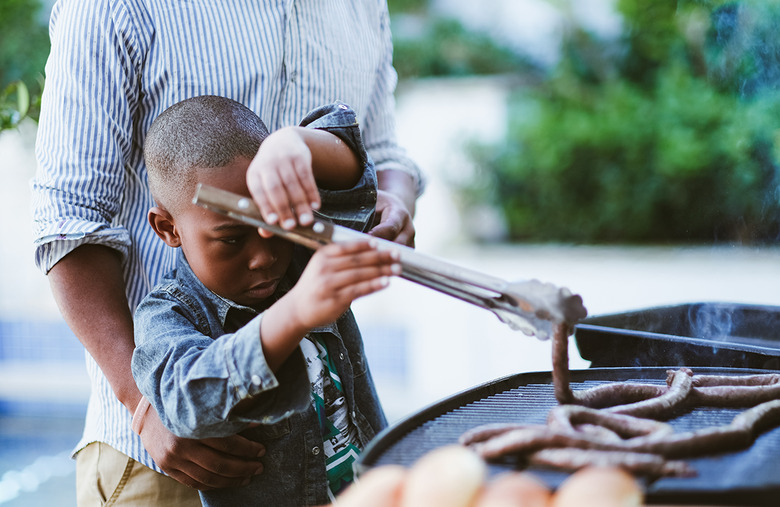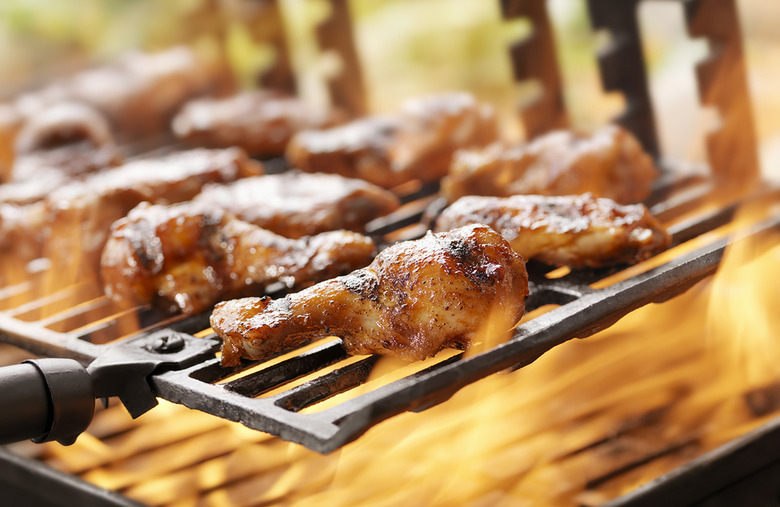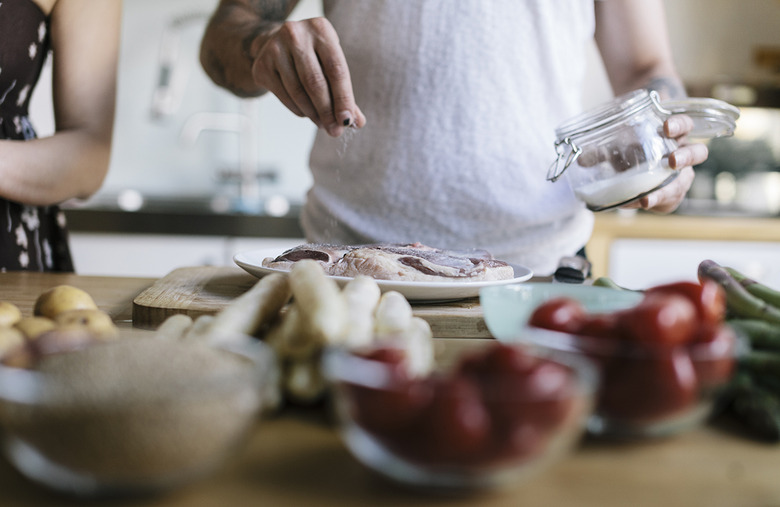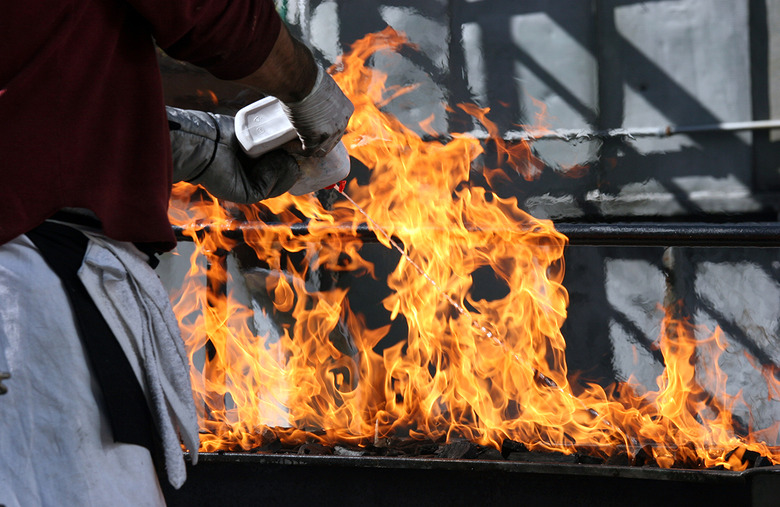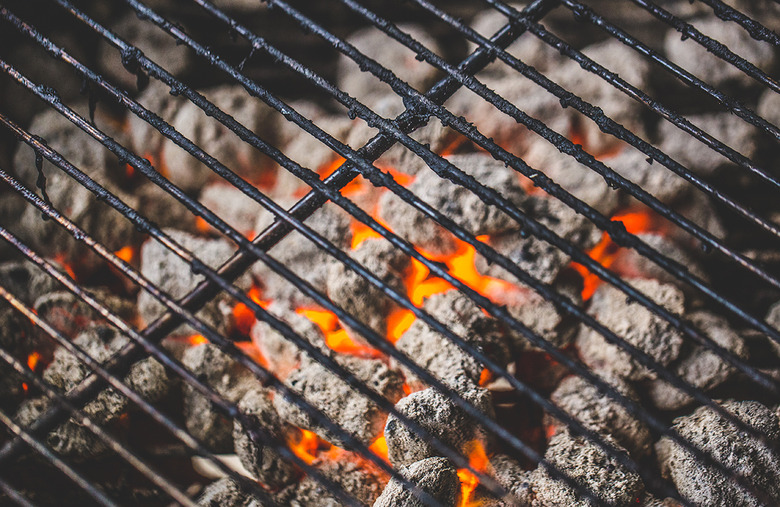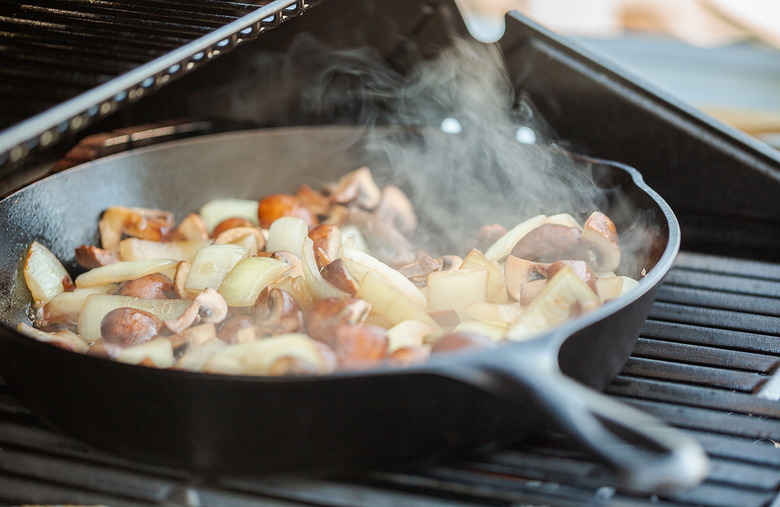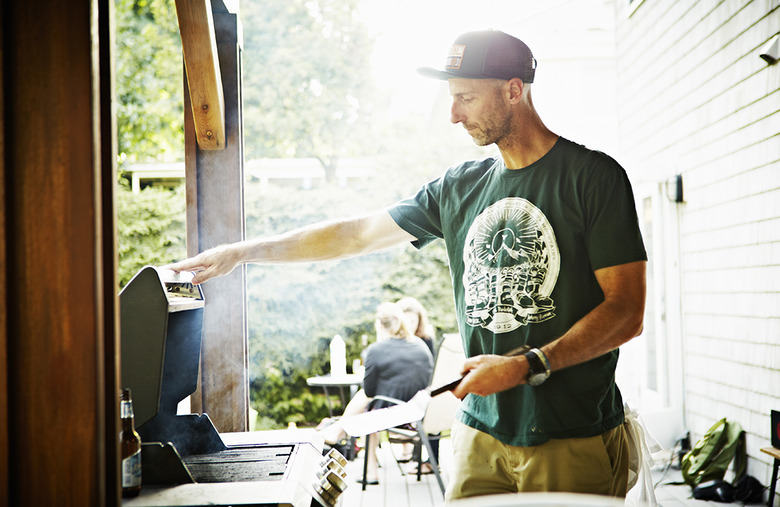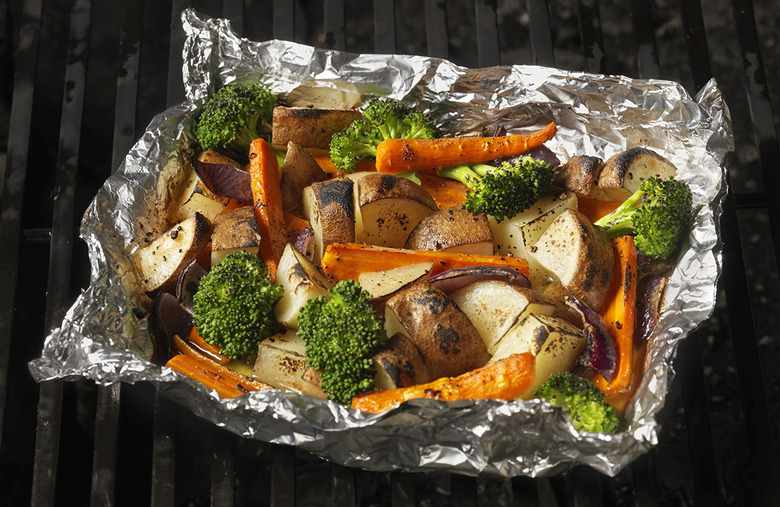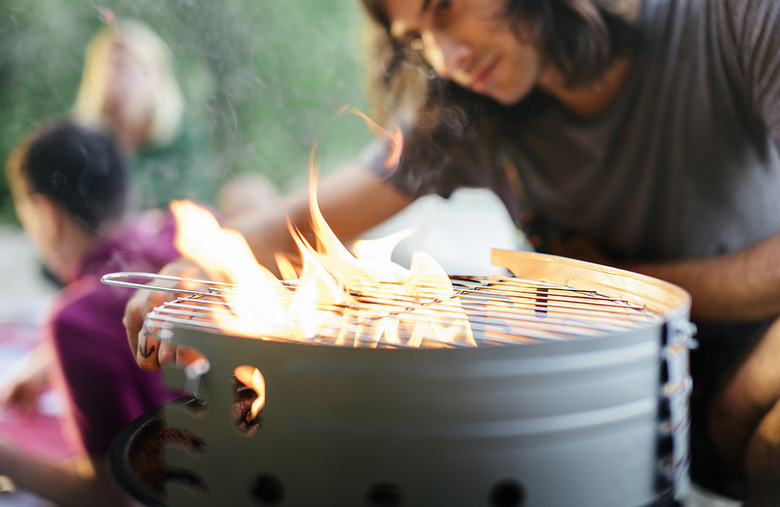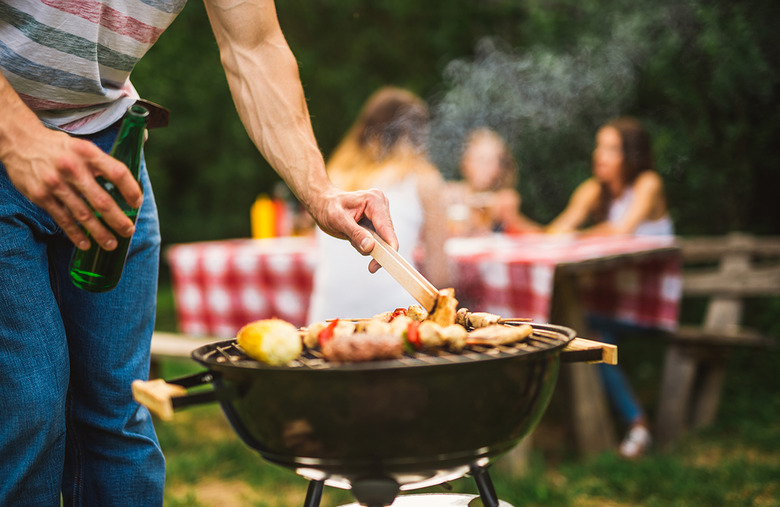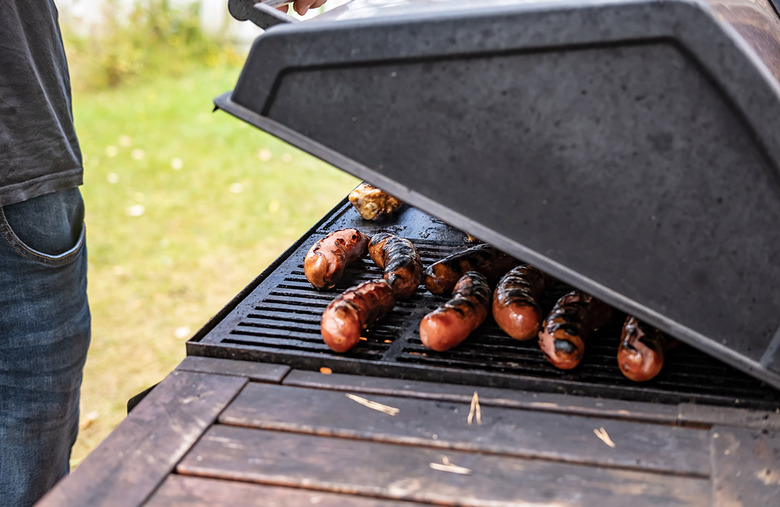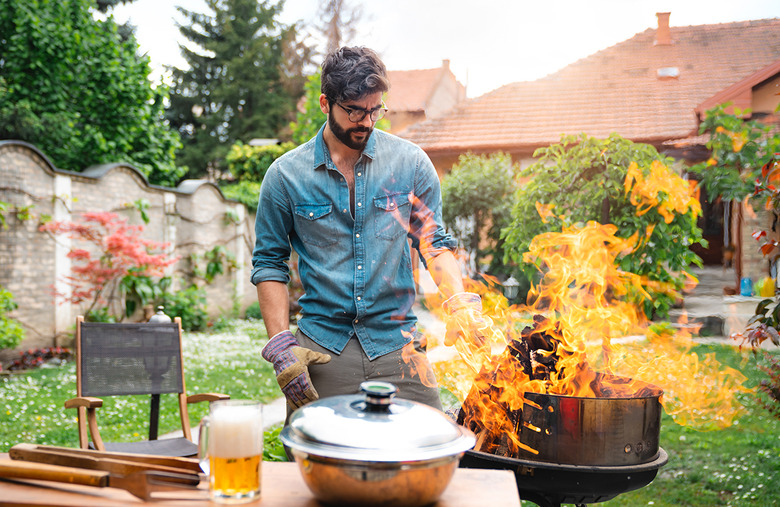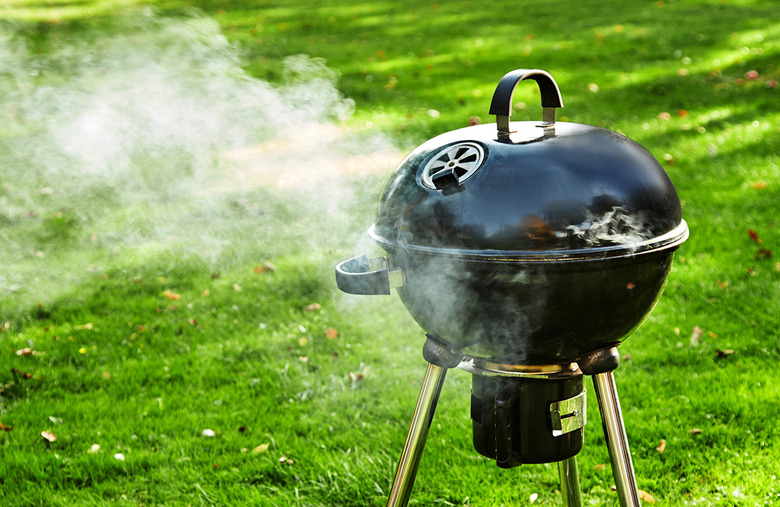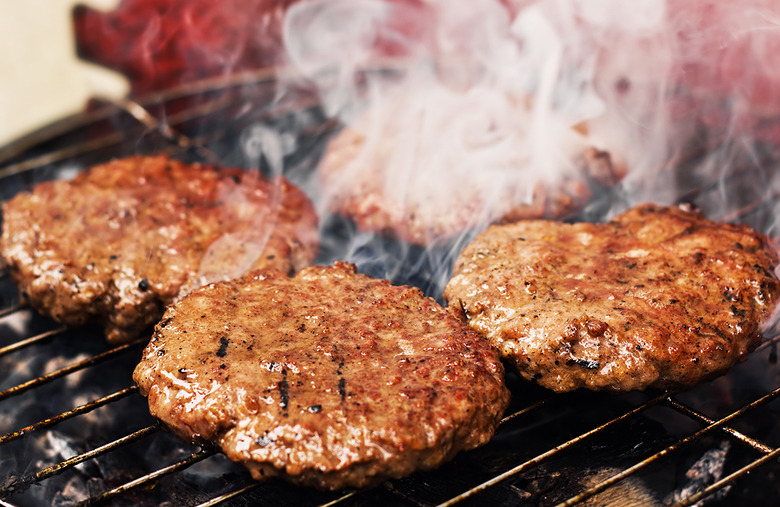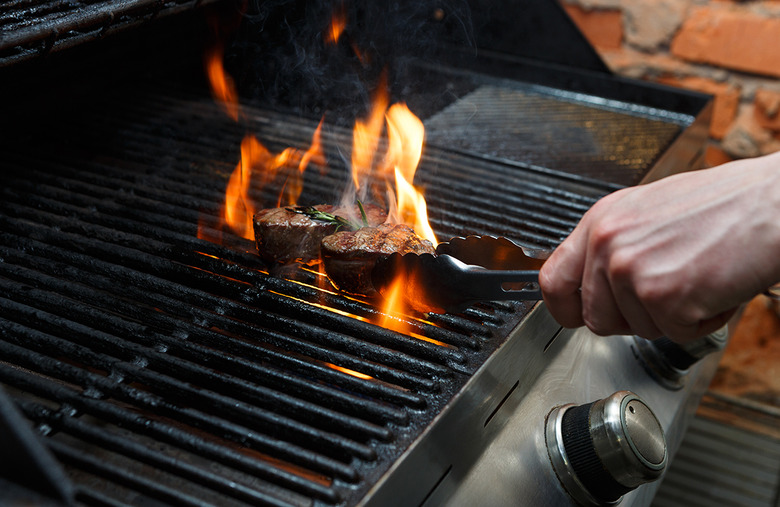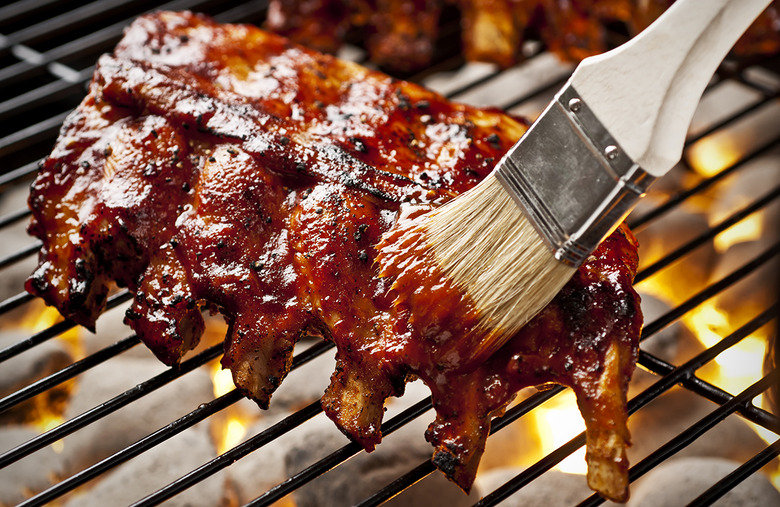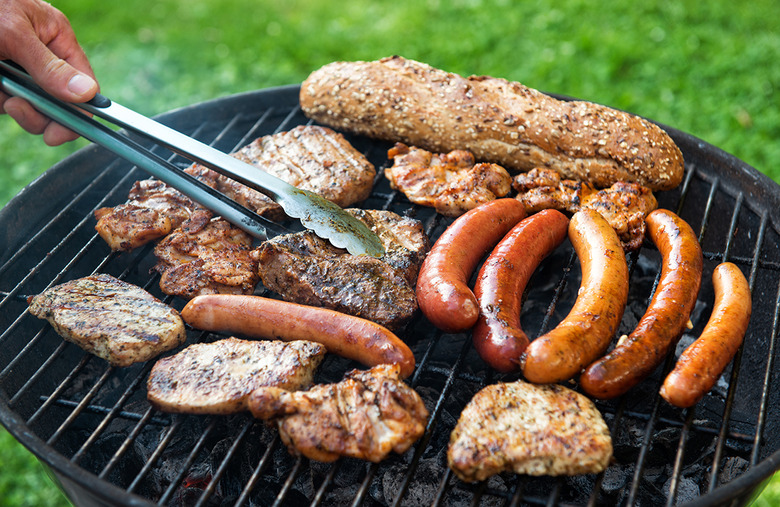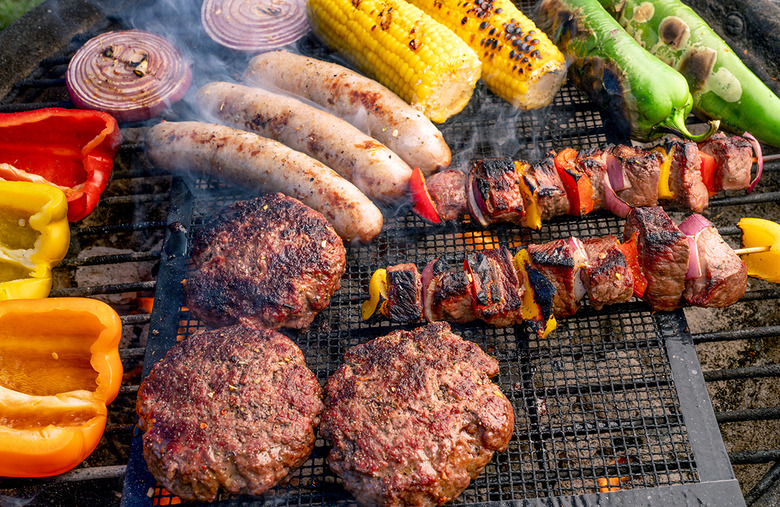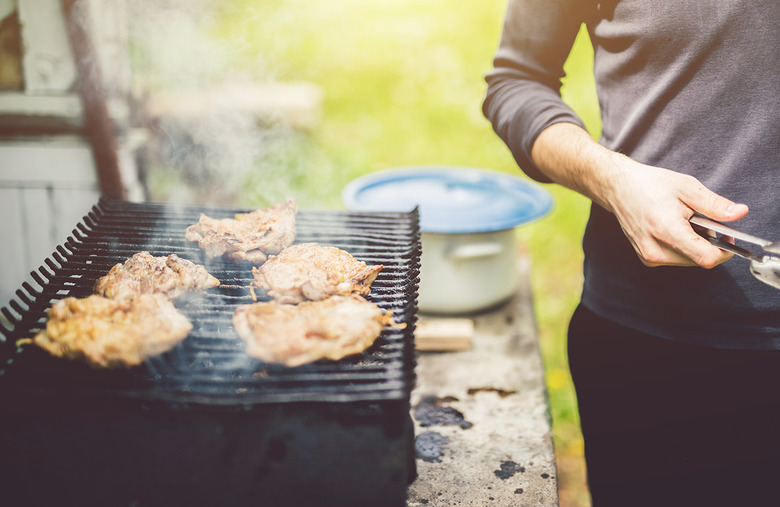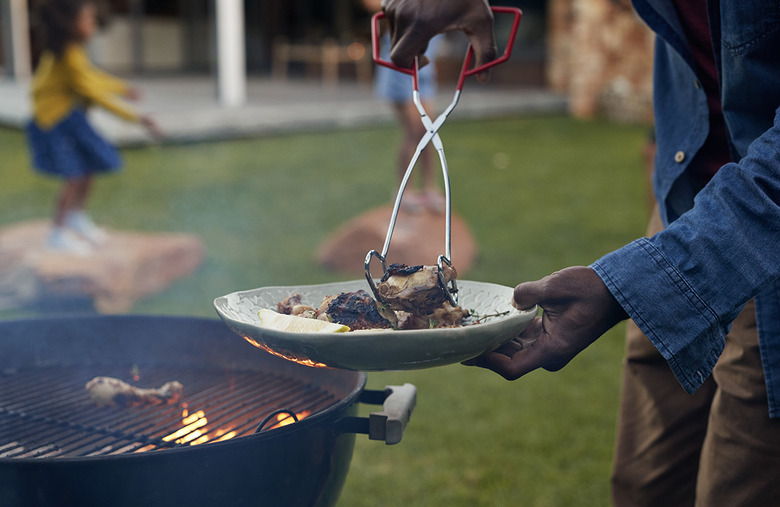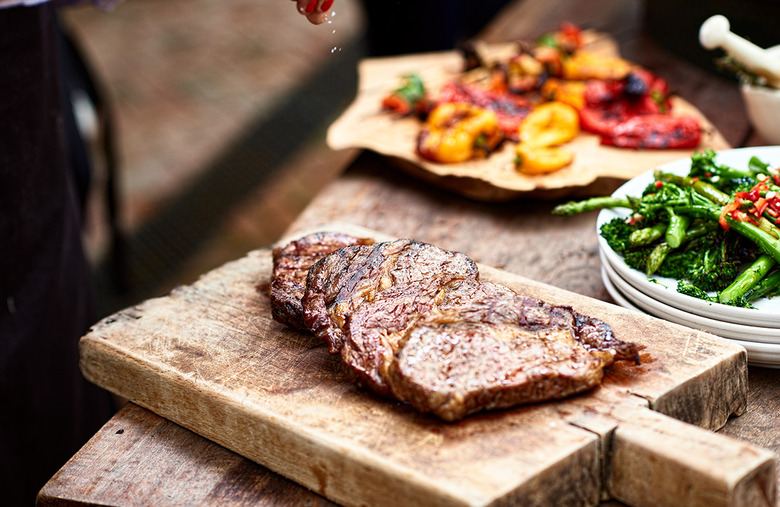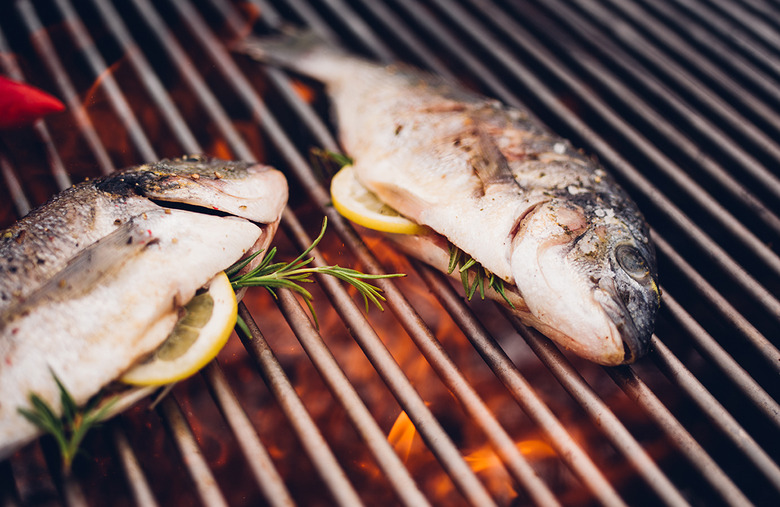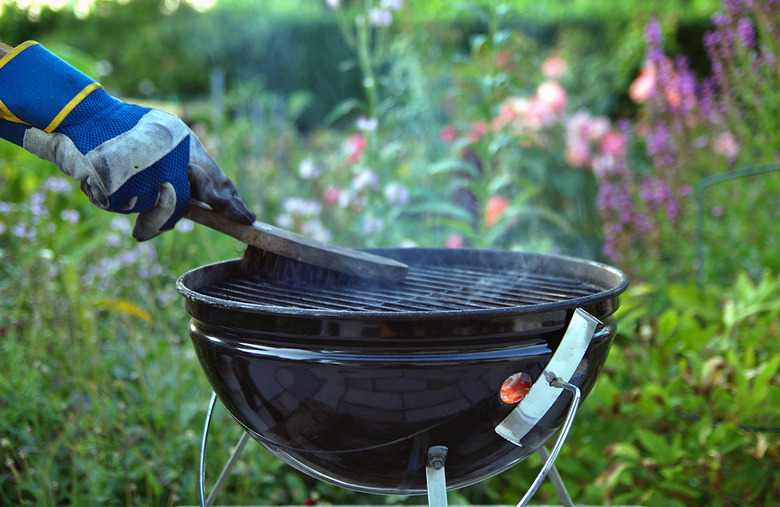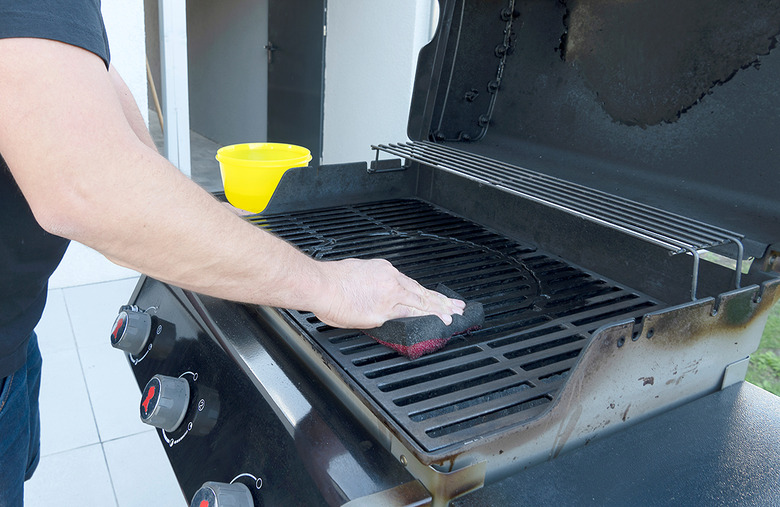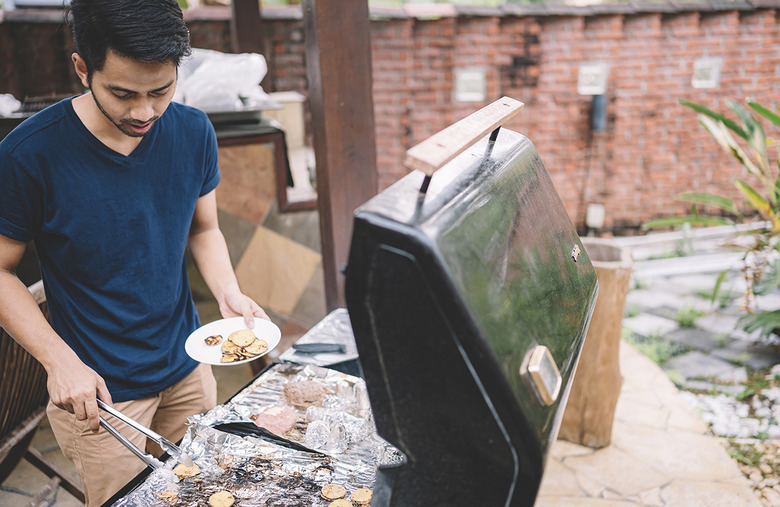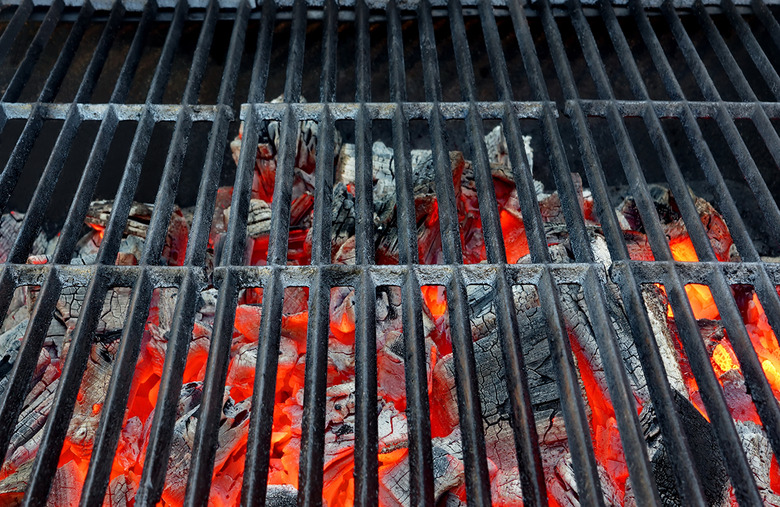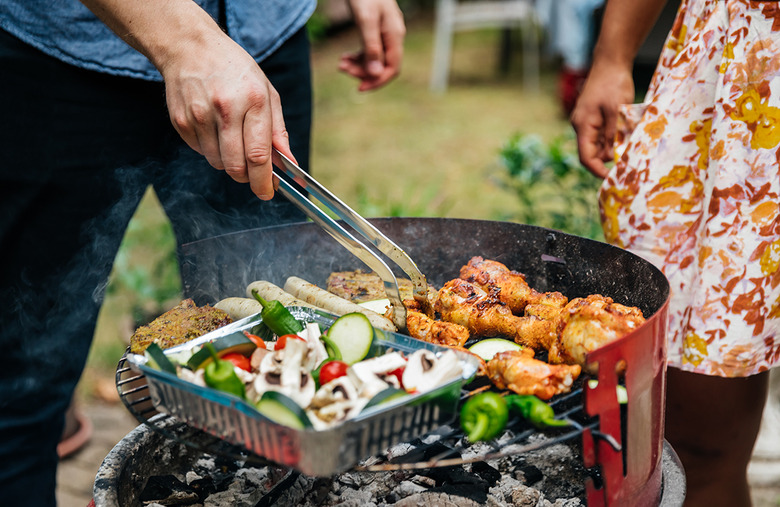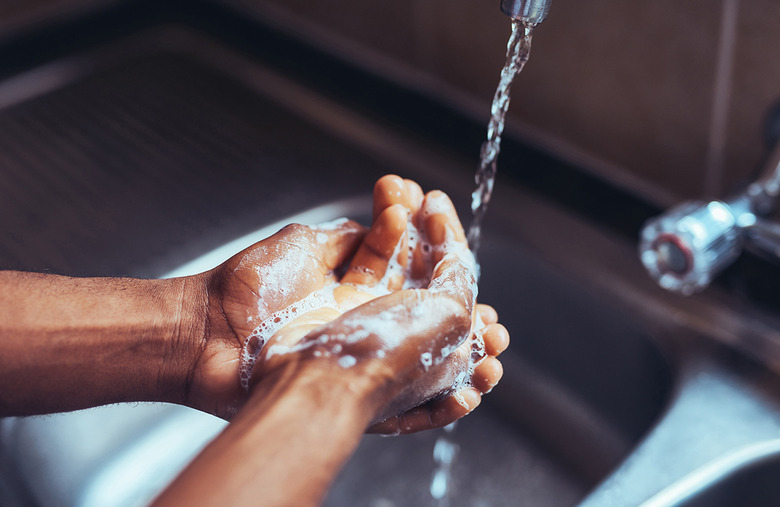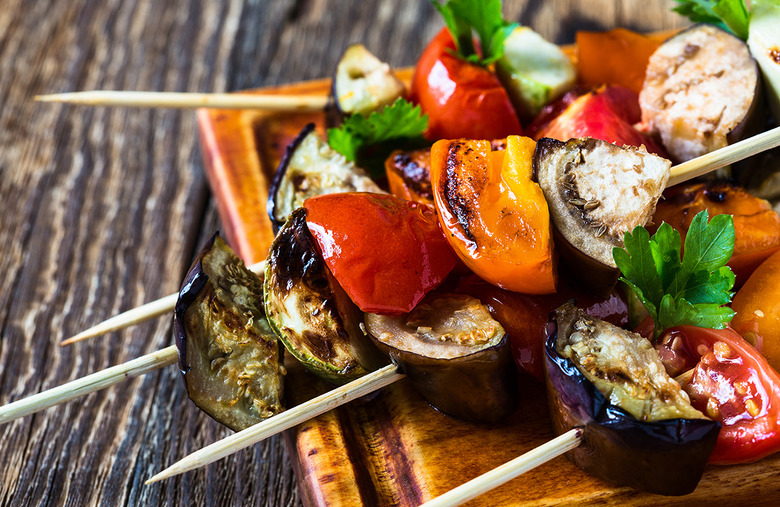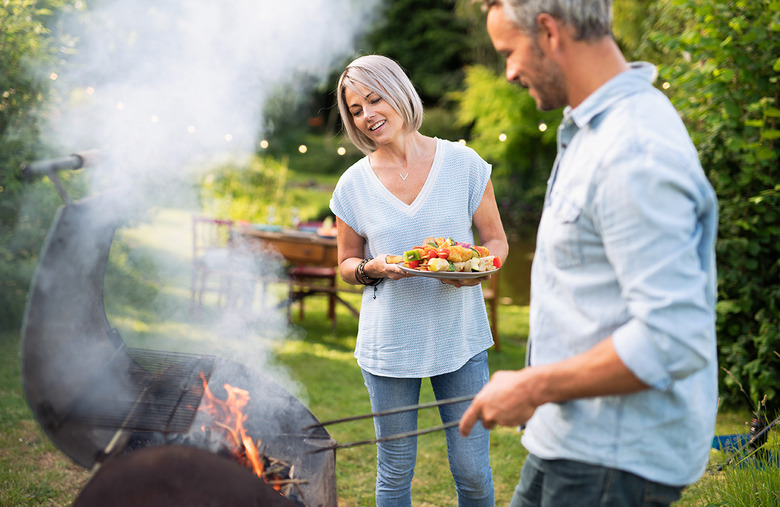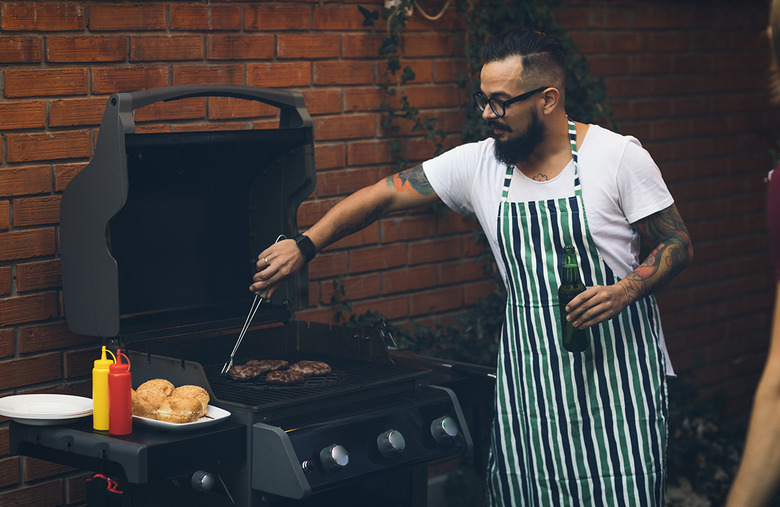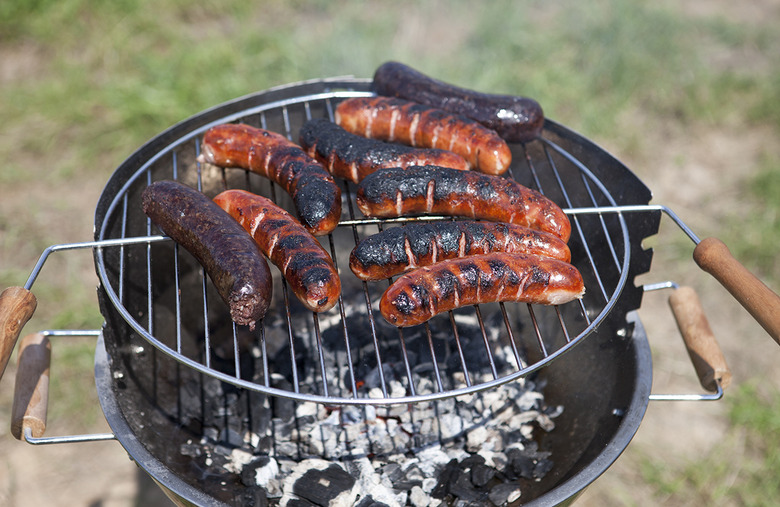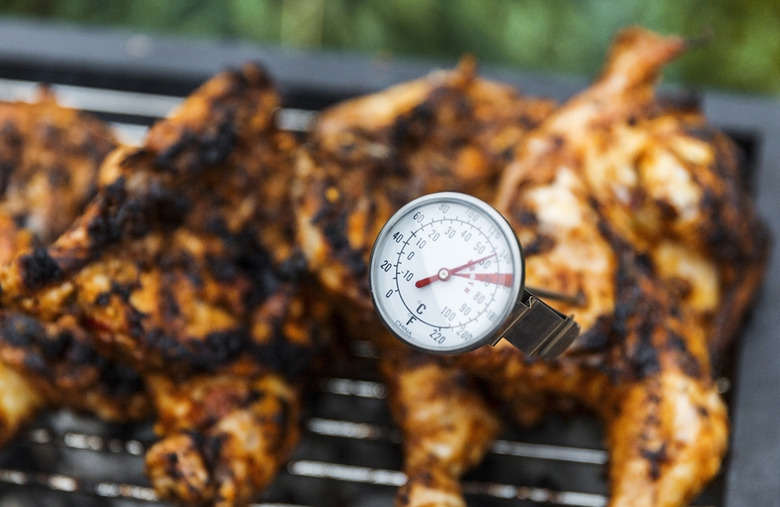How To Grill For Beginners: What Mistakes You Should Avoid
Grilling is an all-American pastime that's perfect for enjoying the weather from your own backyard. Make yourself a simple weeknight dinner or enjoy a mid-day feast of burgers, steaks and hot dogs, but make sure you don't make these mistakes when firing up the grill.
Prepping ingredients at the last minute
One of the most important restaurant secrets every home cook should know is that you should always have your mise en place. Chopping vegetables, marinating meat and having everything in place before you start cooking means you will have more time to focus on what's happening on the grill once you fire it up.
Not storing meat properly
Make sure you know how to store all your groceries properly, especially meat. If you're working with meat that has gone bad due to improper storage, you're already setting yourself up for failure and stomach aches.
Not defrosting meat properly
It's also very important to know how to thaw meat properly before cooking it. You want to make sure you're not defrosting your meat in a way that leaves it susceptible to unhealthy bacteria.
Starting with cold ingredients
Making sure your ingredients are at the right temperature is a basic rule for cooking, grilling and even baking. Going straight from the fridge to the grill will cause uneven cooking, not to mention a longer cooking time that could cause your meat to dry out. Set your ingredients on the counter for about 15 minutes before seasoning so that they have time to come to room temperature.
Not preheating the grill
It's not exactly a steakhouse secret, but many people forget to preheat their gas grills, leading to food that doesn't cook evenly and sticks to the grates. After starting up the grill, leave the lid on for about 10 minutes before you start cooking to make sure the grates are very hot.
Not checking the propane levels beforehand
If using a gas grill, make sure you have enough propane left in your propane tank before grilling. You can do this by using a gauge, weighing your propane tank or by turning off the valve and disconnecting the tank from your grill before pouring warm water over the side of the tank. The part of the tank that has propane in it will feel cooler, while the part that doesn't will feel warmer.
Not using the right heat method
When grilling, there are two types of heating methods: direct and indirect. Direct grilling is used quickly and over high heat and it's suited for smaller or thinner pieces of food, such as steaks, chicken breasts, fish fillets and vegetables. Indirect grilling is when food is placed next to the fire instead of directly over it and the lid is closed to hold the heat in, cooking for longer over a low to moderate temperature. This method is best for cooking whole turkey or chicken, ribs, brisket and other larger and tougher foods.
Using the wrong tools
You don't need much, but having a few essential grilling tools will keep you safe from unwanted burns and your food from landing on the ground. Invest in a grilling apron with pockets, long-handled metal tongs, a long-handled spatula and some oven mittens or kitchen towels to protect your hands when dealing with the lid and vents.
Not drying meat before grilling
When cooking skin-on chicken or any meat that hasn't been left in any kind of delicious classic or unusual meat marinade, you want to make sure the meat is dry before you grill it. If you'd been brining your meat or if it's simply a bit damp, make sure to pat it dry with paper towels before adding spices.
Under-seasoning
You can't really come back from under-seasoned meat. Salt and spices help enhance the natural flavors of meat, making even cheap steaks taste utterly delicious. Salting your meat and leaving it out for 30 minutes can draw out the moisture, helping form a flavorful crust.
Using lighter fluid
While lighter fluid may seem like the easy way to start up a charcoal grill, dousing your coals or using match-light coals will just leave you with a gasoline-scented steak. Invest in a chimney starter instead. Stuff the bottom with old newspaper, fill the top with charcoal briquettes and just light the newspaper, letting the chimney starter do its thing.
Spreading the coals too soon
On a coal grill, spreading the coals too soon will cause your food to cook unevenly. Wait until the coals are coated in gray ash so you can be sure that all of them have been ignited.
Forgetting you can use a cast-iron skillet on the grill
There are plenty of ways you can use a cast-iron pan incorrectly, but putting it on the grill isn't one of them. Use it to roast vegetables or cook more delicate meats so that they don't stick.
Not oiling the grill
Don't forget to oil up the grates of your grill to prevent your food from sticking to it. Once the grill is hot, bunch up a paper towel and dip it into a high-heat cooking oil such as olive or canola. Make sure to use enough to cover the grates but not so much that it's dripping off the paper towel and you risk a flare-up. Using an oven mitt and tongs, wipe the grates down with the paper towel.
Not wrapping vegetables in foil before grilling
If you're looking to grill up some seasonal vegetables alongside your meat options, you want to be careful, since they can burn easily. Wrapping your veggies in aluminum foil will allow them to be heated on the grill without the risk of being burnt to a crisp.
Too much flame
As impressive as it can look, having huge and high flames can be a safety hazard. It's also an easy way to overcook or burn your food.
Not enough flame
While you do want to be careful, if your flames are too low, your food simply won't cook well enough or it will take far too long to do so.
Removing the lid too often
Checking on your food too often is a bad cooking habit you need to stop now, particularly when grilling over indirect heat. Every time you lift the lid of your grill, you're letting out the hot air needed for your food to cook and it can take some time for the temperature to get back to where you want it after you close the lid again.
Leaving the grill unattended
For obvious reasons, leaving a fire blazing in your backyard unattended is certainly a fire hazard, but food also burns quickly under such intense heat, so stick around to keep an eye on it.
Not using the vents properly
A grill's vents control the oxygen flow and, therefore, the fire. Using the vents is the best way to monitor and control the flame while cooking. When using indirect heat, keep the top and bottom vents closed so you can trap the smoke and keep the heat low. Opening the vents up for a more intense flame is one of the secrets to grilling a perfect steak.
Pressing down on your burger patties
When attempting to make some next-level burgers, you may think that pressing on the burgers will help produce sear marks, but all you're actually doing is draining your patties of their juices. Keep your burgers juicy by not pressing down on them while they cook.
Flipping the meat too often
You don't want to flip your meat over too often, especially when cooking yourself the perfect steak. Excessive flipping will cause your meat to not cook properly, and you want it to develop a nice crust and sear on the grill.
Adding the sauce too early
When trying out some new, easy grilling recipes, the sugars in your favorite barbecue sauce will burn if you add it to your meat too early. Rather than ending up with a blackened layer of barbecue sauce on your meat, wait until the last five minutes of cooking to spread a thin layer of sauce on.
Cooking all your meats at once
Don't cook your chicken, burgers and hot dogs at the same time. Not everything cooks at the same temperature, and cross-contamination can make you sick. Cook different meats separately so that they all turn out perfectly.
Grilling meat and vegetables together
While you may be tempted to grill a skewer of meat and vegetables or cook your onions at the same time as your burgers, doing so can risk cross-contamination and food poisoning. It can also lead to an unevenly cooked meal, as vegetables tend to grill much faster.
Cooking every type and cut of meat the same way
Not only should every type of meat be treated and cooked differently, but different cuts of meat require being grilled in different ways, especially when grilling chicken. For example, cuts of meat that have bone or skin will require more time to cook, and cooking chicken over a high heat increases the risk of serving undercooked chicken.
Placing cooked meat where raw meat was
Whether flipping meat over or transferring it to another plate or tray, don't place meat that you've cooked down on a spot that raw meat had previously been touching. Doing so can cause your meat to be contaminated with bacteria and make people sick.
Not resting your meat long enough
One of the best cooking tips we learned from our parents is to always let your meat rest after cooking, and this applies to all grilled meat as well. Resting your meat for about five to 15 minutes will allow the juices that were drawn to the surface when cooking time to be redistributed.
Limiting your grilling options
Don't limit yourself to just burgers, steaks and hot dogs. Not only can you grill all kinds of vegetables, but you can also grill any kind of meat, as well as different types of cheese with a high melting point, such as halloumi.
Forgetting to clean the grates
You don't want your food to stick to the grill, so be sure to clean it after each use. Use a metal brush while the grill is still hot to scrub off any caked-on food.
Deep cleaning your grill too often
You may be tempted to give your grill a good scrub down whenever you can, but doing so can mess up the grates. Instead, give your grill a deep clean only every few months.
Thinking you can’t grill it
Grilling may seem like a daunting task, especially if you're not used to grilling something like a big steak or are unsure whether you can grill the perfect salmon when you usually bake it. As long as you're patient and willing to learn, as well as stick to all safety guidelines, you can definitely teach yourself and improve with practice.
Not disposing of coals properly
When you're done grilling, you don't want to just throw out hot coals, as it's another fire hazard. Instead, close your grill's lid and vents, leaving it for 48 hours until all the ash has cooled down and then wrap the coals and ash in foil before throwing it in a non-combustible garbage bin. If you've used wood charcoal without any additives, you can even repurpose it for your garden as fertilizer.
Buying an expensive grill
Don't buy an expensive grill right off the bat. As a rookie griller, save yourself some money and start out with something cheap and see how often you actually do some grilling before you go all-in on a grill with all the bells and whistles.
Not washing your hands after touching raw meat
Make sure to properly wash your hands after touching raw meat, especially before touching any cooked meat, to prevent the spread of harmful bacteria.
Not soaking wood skewers in water first
Grilling is a great way to recreate some of your favorite iconic street foods such as kebabs, but don't just throw some meat on a skewer before plopping it onto the grill. Wooden skewers can burn easily, so soak them in warm water for 30 minutes to one hour before threading any food onto them.
Grilling too close to flammable items
When grilling, it's important to make sure you're not too close to any items that are flammable if they get too hot or come in contact with a spark. Grill far away from any flammable clothing, cars or tents, especially if you're grilling in a beautiful spot at the park.
Drinking too much alcohol while grilling
Having a nice beer while grilling in your backyard is a favored pastime of many, but you want to take care not to drink too much alcohol while at the grill. Safety is of the utmost importance when grilling, and you want to be alert.
Poor time management
As any experienced cook will tell you, time management is key when cooking or grilling anything. Keep track of time so that you don't overcook or burn anything, and make sure to stay prepared so that you and your fellow diners aren't left hungry for too long.
Not using a meat thermometer
The best way to ensure you cook your meat perfectly every time is to invest in a meat thermometer and check for the right temperature. Knowing how to utilize a meat thermometer is essential to knowing how to cook chicken, steak and other foods correctly.
More from The Daily Meal:
How to Cook Grilled Chicken That Isn't Boring
How Long Meat And Other Foods Last in the Fridge and Freezer
Easy Casserole Recipes for Breakfast, Dinner and Everything in Between
How to Make Your Food Last Longer
